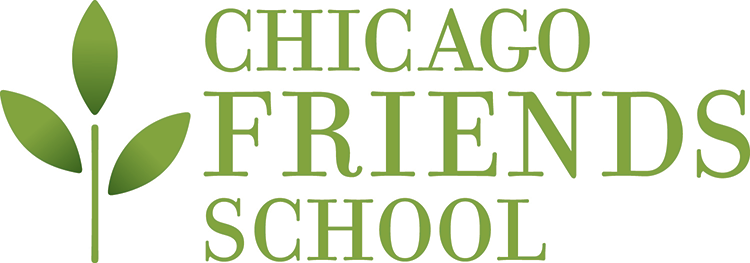Throughout the year, at Chicago Friends School, we reflect on and discuss Quaker Values in community meeting. We recently finished talking about simplicity, and I was forced to pause and think about how hard this is for young kids who are growing up in today’s America.
The Quaker value of simplicity might be best recognized in 18th and 19th century Quakers’ use of “plain dress” or unadorned garments. Early Quakers’ plain dress served a few purposes – to take the community’s and the individual’s focus away from external appearances so their thoughts might be more focused on God, to remove any social hierarchy that might be apparent in clothing, to mark the Quakers as a people “in the world but not of it,” or in other words, as spiritually-focused rather than materialist. Some 18th and 19th century Quakers chose not to dye their clothing because indigo was planted and harvested by slaves and buying dyes would support slaveholding.
Modern Quakers keep alive this tradition of simplicity in different ways, but it retains some of the core ideas: Try to not be driven by materialism; be mindful of the impacts of consumerism, reduce distraction and frivolous efforts so as to more wisely spend mental, spiritual, and material resources. Many modern Quakers keep a concern for the environment in the forefront of their simplicity practices.
As we reflected on simplicity as a school this year, a surprising thread came up in our conversations questioning simplicity. Students asked:
- Can you take simplicity too far?
- Does simplicity demand that we give up things that we love?
- How much stuff is too much stuff?
- If we want to share equally, does that mean giving up things (like a safe house) until everyone has one?
At first I didn’t know what to do with these questions. But then I realized that they were finding the exact same struggles and paradoxes that adult Quakers do when thinking about simplicity. Simplicity, like all Quaker testimonies, is embraced by each person to the extent that they are able and willing. And every person reflects on how to live their values (including simplicity) given their needs and their life situation. For example, I know that drinking coffee is bad for rainforest preservation, but I have my daily cup (or three).
Kids have less experience with shades of grey than adults, and will take an idea to its conclusion, often in a black and white way. In this conversation, our students were doing exactly what they should do with the idea, really thinking it thorough and finding its limits. The more I thought about it, the more proud I was of them. We are living in a materialistic society, and no one more than kids, is marketed to constantly. Buying and having things is presented to us all the time as a desirable end point, and having new possessions is a mark of success. No wonder kids were thinking hard about an idea that asks them to not consume, or at least consume mindful of the consequences. I realized that its great that they’re questioning where simplicity leads. Because in doing so, they’re also questioning the materialism of the society they live in.
This is just the beginning of all of these students thinking about the broader American culture and their role in it. They have years, within which to better understand how they live their values, and where they want to fit in.


Karen Carney
is the head of school. Karen’s career demonstrates a rich and diverse set of skills: project oversight, curriculum development, educator training and mentoring, and classroom instruction. Prior to coming to Chicago Friends School, she worked as a senior specialist in science curriculum for American Institutes for Research. Before this, she oversaw educational programming at the Adler Planetarium, first as its director of education and then as associate vice president for visitor experience and learning. She has also worked in instruction and teacher development at the University of Illinois at Chicago’s Learning Sciences Research Institute and has authored more than 20 scholarly papers, book chapters, and conference presentations.
Karen is an active, dedicated Friend (Quaker) and has held various leadership positions at the Evanston Friends Meeting. She enjoys baking, cooking, and painting and is a member of the Playmation improv comedy team.